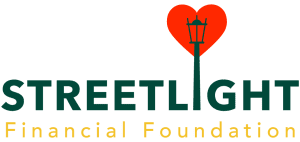In contemporary society, estate planning has ascended as a pivotal component to ensure a smooth and efficient transfer of assets to forthcoming generations. Estate Planning Tools provide a mechanism to safeguard and pass down wealth and devise a strategy to prepare heirs for their impending inheritance adequately. This blog endeavors to trace a pathway emboldened by foresight and wisdom, advocating for a legacy that persists and is judiciously managed by subsequent generations.

The Significance of Integrating Estate Planning Tools into Family Planning
Embarking on effective planning commences with a thorough comprehension and application of various Estate Planning Tools to ensure a seamless and structured asset transition. This process begins with a profound understanding of the diverse tools available, such as trusts, wills, and legal powers, each offering varying degrees of control and protection.
Nevertheless, a tool alone is insufficient to shield a family inheritance. The true safeguard lies in educating and preparing the heirs. When implemented effectively, estate education not only teaches heirs how to manage wealth but also instills an appreciation for the legacy and family values accompanying that wealth.
Adaptability is key in estate planning. Estate Planning Tools must be utilized in a manner that accommodates the family’s shifting needs and the financial market’s oscillations. Implementing regular family meetings where these topics are openly discussed can strengthen family bonds and simultaneously acquaint each member with the principles and expectations surrounding their inheritance.
Weaving Estate Planning Tools into the Heirs’ Education
The integration of Estate Planning Tools into the education of heirs should not be underestimated. This proactive approach not only prepares heirs to effectively manage their inheritance but also serves to preserve and augment family wealth for future generations.
Creating a financial education curriculum centered around estate planning tools can be an excellent starting point. Heirs who understand how different Estate Planning Tools function and how they can be strategically applied are better positioned to make informed decisions when they ultimately inherit family assets.
A vital component of this education should be work ethic and financial responsibility. Through regular exposure to the family’s financial operations and investment decisions, heirs can learn how wealth was acquired and how it can be maintained and grown for future generations.
Finally, while Estate Planning Tools provide a solid foundation for transmitting and safeguarding wealth, the true testament of an enduring legacy resides in a family that is bound not only by shared assets but also by shared values. In this vein, estate planning tools become instruments not only of financial preservation but also of familial cohesion and continuity.

Conclusion
Effective estate planning through strategic use of Estate Planning Tools is paramount not only to safeguarding an inheritance but also to ensuring that heirs are prepared and capable of managing that inheritance efficiently and ethically. Families that incorporate financial education and estate planning tools into their family structure and communication are not only investing in financial wealth but also in the wealth and unity of their familial relationships. In this way, the built legacy will endure, and future generations will be equipped to manage their inheritance with wisdom, foresight, and a deep appreciation for the values and endeavors of their predecessors.
Contact Us! We Understand Finance And Trust.
Our Streetlight Financial Offices in Massachusetts and Vermont.











